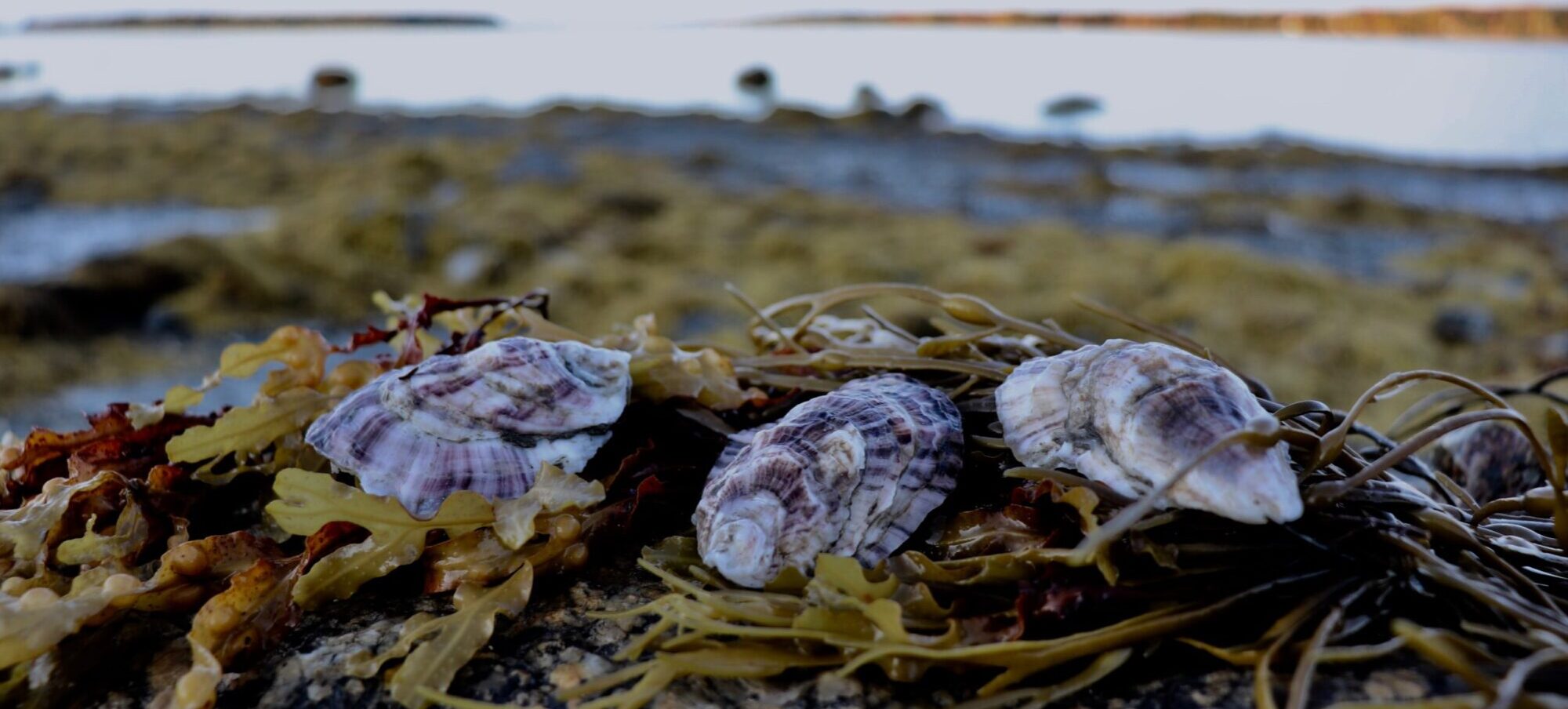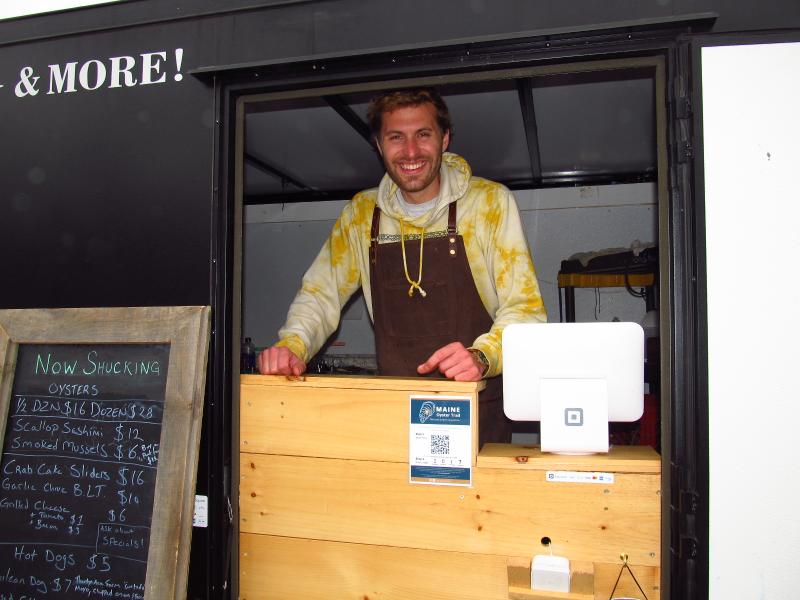 Brother Shucker serves cold fresh oysters from a food truck
Brother Shucker serves cold fresh oysters from a food truck
Pen Bay Pilot, 6/2/22 – “Brother Shucker is a new fixture in Rockport and beyond the cheeky name, the food truck offers something no other food truck in the Midcoast has ever offered: fresh, raw oysters shucked on site. Zak Kuras moved to Maine in 2016 and started oyster farming on the Damariscotta River, first with Glidden Point Oyster Farm in Edgecomb. After that, he managed Community Shellfish’s Oyster Farm in Bremen. “I decided after that, I’d like to run my own business with my brother, Hudson,” he said—which removes the mystery of where the name “Brother Shucker” came from.”
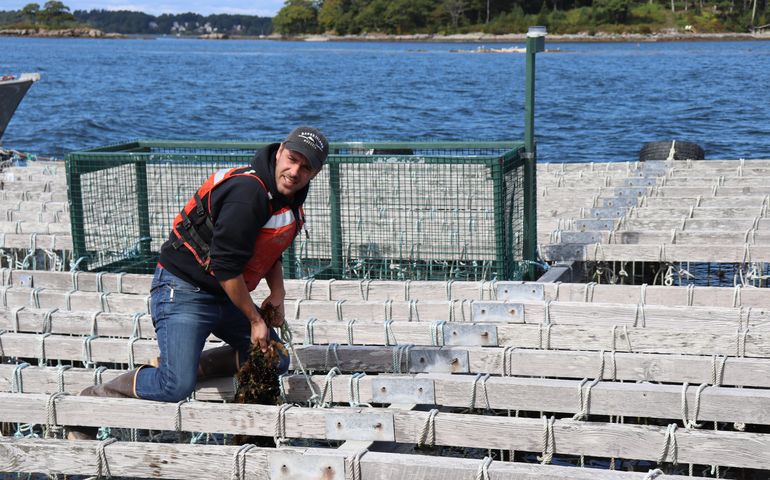 CASCO BAY MUSSEL FARM DOUBLES PRODUCTION IN TWO YEARS
CASCO BAY MUSSEL FARM DOUBLES PRODUCTION IN TWO YEARS
Mainebiz, 5/24/22 – “A planned expansion helped Bangs Island Mussels, a Casco Bay mussel farm, double production over the past two years, with further growth expected for 2022. The farm, founded in 1999, grows mussels on ropes suspended from rafts above the ocean floor. The product, sold nationally, has been featured in outlets such as Martha Stewart Living and the New York Times. Father-and-son Gary and Matthew Moretti bought the operation in 2010 and began growing kelp, sold to Biddeford food producer Atlantic Sea Farms, alongside the mussels using a system called “integrated multi-trophic aquaculture.”
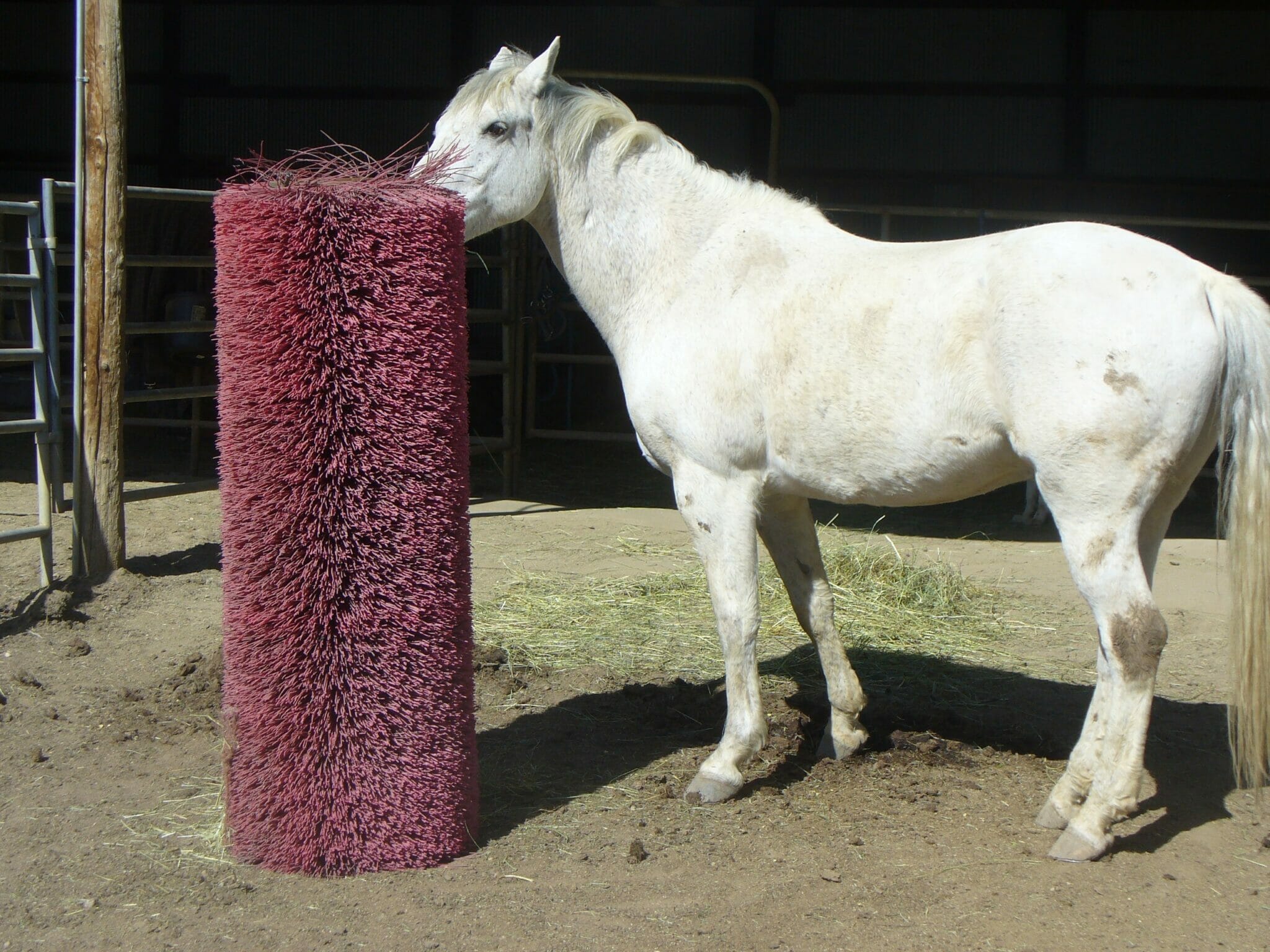 THESE FARMERS AND RANCHERS TURN TRASH INTO TREASURE
THESE FARMERS AND RANCHERS TURN TRASH INTO TREASURE
Modern Farmer, 5/23/22 – “Farmers and ranchers are the ultimate innovators, finding all kinds of creative uses for items that would otherwise end up in a landfill—or, sometimes, that already have. “All the rope I use I get at the dump,” says Abby Barrows, a Stonington, Maine-based oyster farmer and marine scientist researcher. Barrows, who, in her work as a marine scientist, focuses on microplastics in the ocean, has reused various materials since buying the oyster farm in 2015. “It’s been my flavor going into it,” says Barrows, who inherited flotation devices for the oyster bags on her farm made of cedar and housing installation from the previous owner of the oyster farm. She also built an oyster tumbler using wood that she and her husband cut and milled themselves and oversized PVC piping in which they drilled holes.”
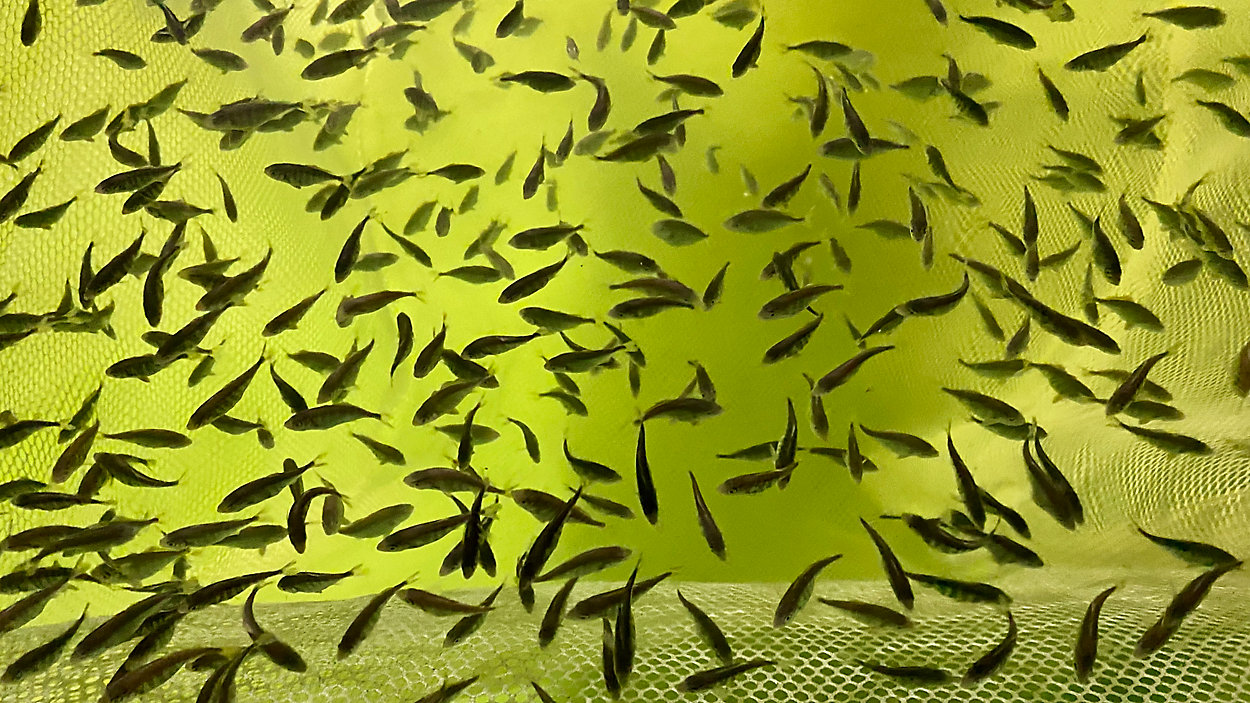 STILL AWAITING FINAL PERMITS, KINGFISH MAINE GETS FIRST SHIPMENT OF YELLOWTAIL
STILL AWAITING FINAL PERMITS, KINGFISH MAINE GETS FIRST SHIPMENT OF YELLOWTAIL
Bay News 9, 5/23/22 – “The company hoping to build a large-scale fish farm in Jonesport recently received its first shipment of yellowtail kingfish from the Netherlands, an effort to ramp up production in anticipation of receiving final permits. “When you’re planning a big facility, getting fish ready ahead of time is critical,” said Megan Sorby, operations manager for Kingfish Maine, the American branch of the company owned by Kingfish Zeeland in the Netherlands. As they await permission to build a new facility on 93 acres in Jonesport, the company is leasing space at the University of Maine’s Center for Cooperative Aquaculture Research in Franklin.”
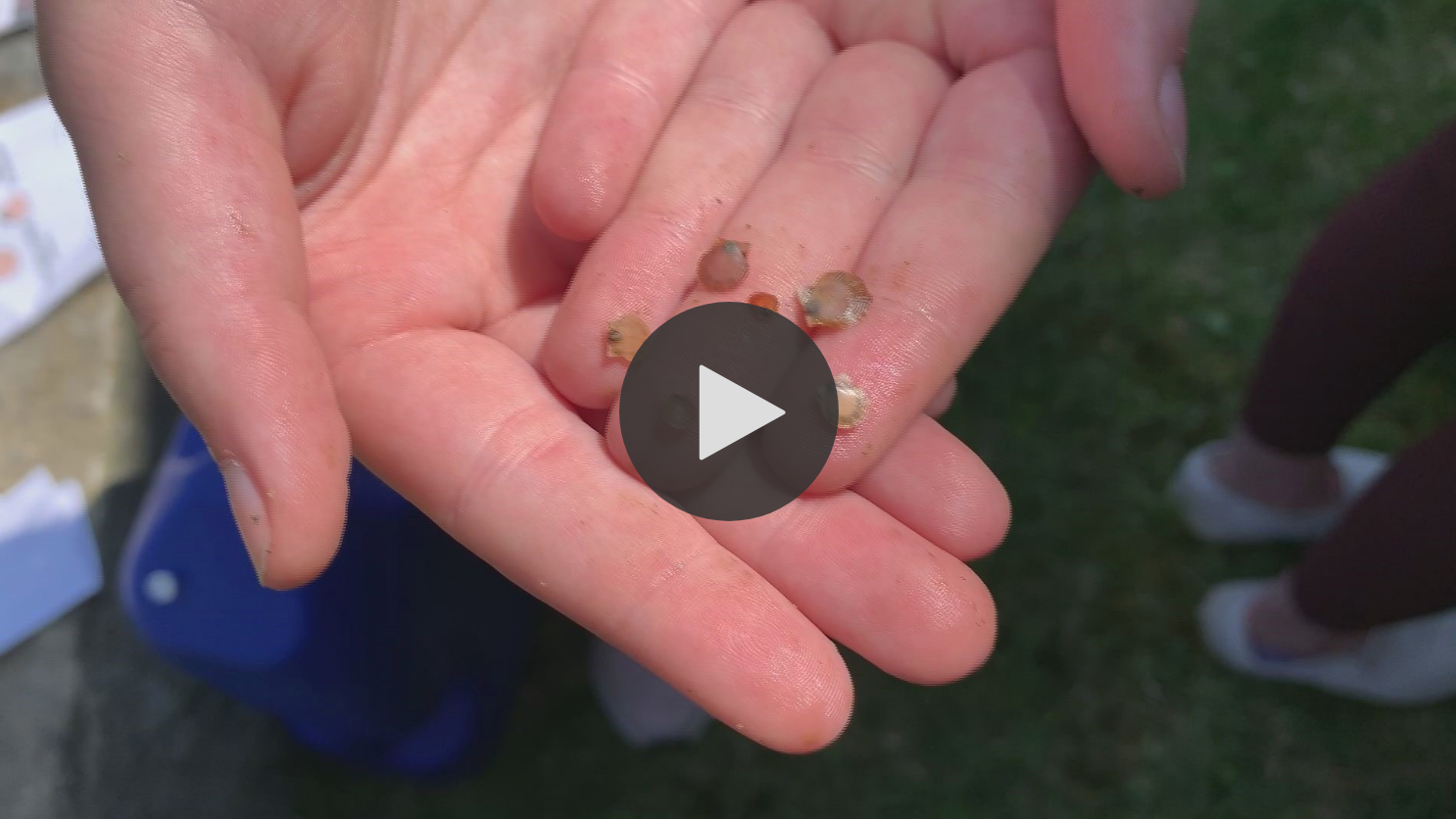 STUDENTS LEARN SCIENCE OF SCALLOP FISHERY AT HURRICANE ISLAND SCHOOL
STUDENTS LEARN SCIENCE OF SCALLOP FISHERY AT HURRICANE ISLAND SCHOOL
News Center Maine, 5/19/22 – “As the spring days edged closer to summer, students at Oceanside High School in Rockland skipped class to search for scallops. On a sunny May school day, sophomore Aiden Weymouth boarded a skiff along with other students to retrieve spat bags—mesh bags designed to trap scallop larvae that floats freely in the ocean—from Penobscot Bay. Students placed nine spat bags in the harbor last fall. Altogether, they lost five bags and one was destroyed, but three bags remained. They spent part of their school day carefully picking baby scallops from the mesh.”
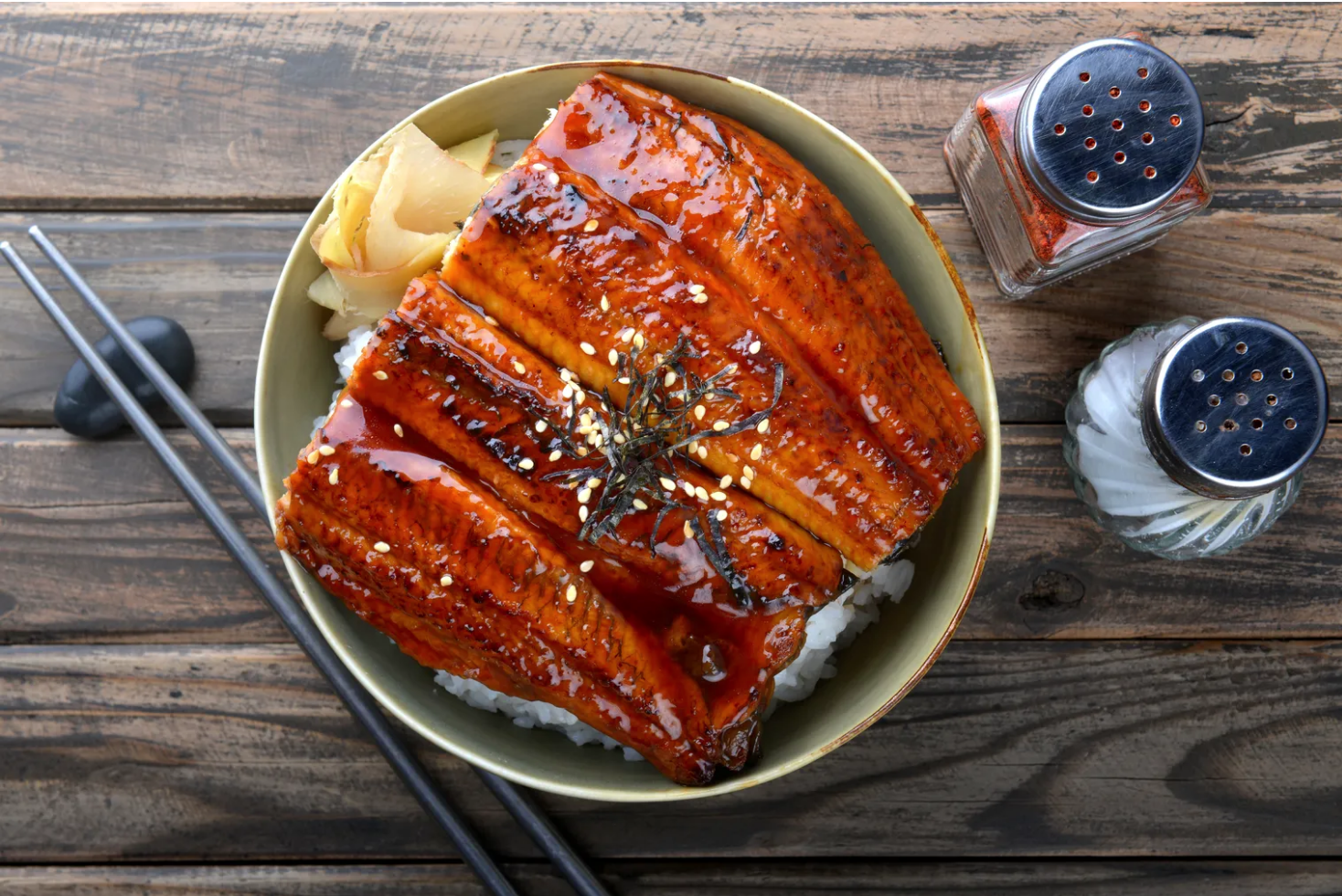 REINVENTING THE EEL
REINVENTING THE EEL
Eater, 5/17/22 – “Many eels appearing on menus are raised in China, where limited regulation means that eel farms can import the fish from illegal or sustainably fished populations, and then grow them using potentially harmful chemicals. So what’s an ethical eel eater to do? In an otherwise unassuming business park in Waldoboro, Maine, one small company may have a solution. On this week’s episode of Gastropod, “Reinventing the Eel,” co-hosts Cynthia Graber and Nicola Twilley visit the brand-new industrial facility of American Unagi, the first and only commercial-sized eel farm in North America, where pioneering eel farmer Sara Rademaker is trying to change the way the U.S. buys and eats eel.”
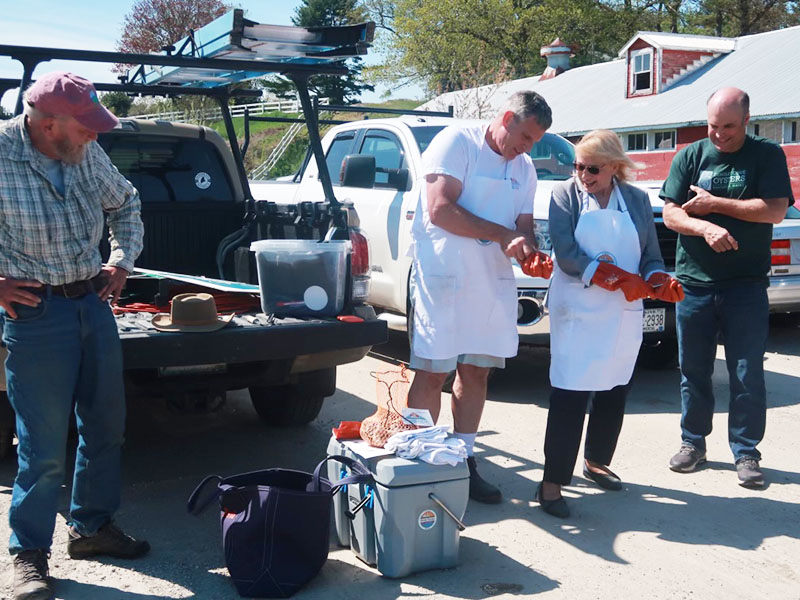 Governor Mills Highlights Responsible Aquaculture as Opportunity to Create Jobs, Strengthen Economy, and Promote Maine Seafood
Governor Mills Highlights Responsible Aquaculture as Opportunity to Create Jobs, Strengthen Economy, and Promote Maine Seafood
Office of Governor Janet T. Mills, 5/17/22 – “During a roundtable with sea farmers from the New Meadows River Shellfish Co-op today, Governor Janet Mills highlighted her Administration’s commitment to responsible aquaculture as an opportunity to strengthen and diversify Maine’s economy, generate good jobs, and provide Maine people with sustainable, locally-farmed seafood. To support Maine’s aquaculture sector, the Governor pointed to millions of dollars made available to Maine sea farmers through the State’s distribution of funding through the CARES Act, the Governor’s Maine Jobs and Recovery Plan, the Consolidated Appropriations Act, the recently enacted supplemental budget, and the Working Waterfront Access Protection Program.”
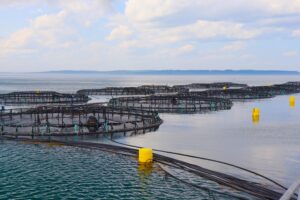 WHAT’S NEXT IN SEAFOOD SUSTAINABILITY?
WHAT’S NEXT IN SEAFOOD SUSTAINABILITY?
Progressive Grocer, 5/10/22 – “Speaking of aquaculture done right, the Maine Aquaculture Association has had that goal since it was founded back in 1977, making it the oldest state aquaculture organization in the country. According to Executive Director Sebastian Belle, with whom PG spoke during the expo, the Hallowell-based nonprofit association also pioneered the internal adoption of best practices, developing codes of conduct to which farmers were expected to adhere, with external audits and third-party certification beginning in 1991. Today, the Maine Aquaculture Association spends much of its time providing support services, including business planning, to new farmers. Belle pointed out that Maine’s aquaculture community is an increasingly diverse group whose average age is in the mid-thirties.”
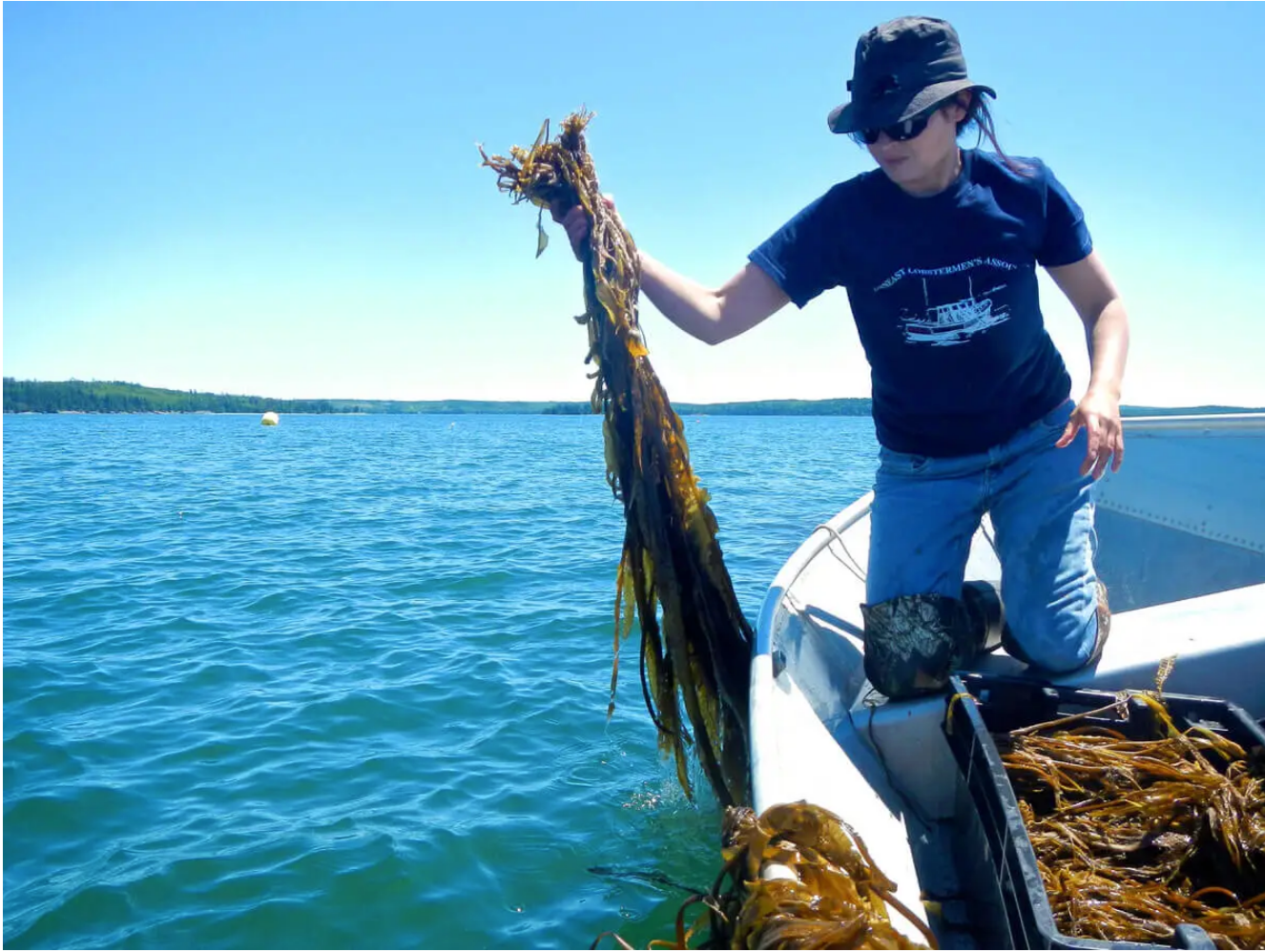 MAINE SEAWEED FARMER AIMS TO HELP AQUACULTURE GROW MORE LUCRATIVE OCEAN PLANTS THROUGH NEW METHOD
MAINE SEAWEED FARMER AIMS TO HELP AQUACULTURE GROW MORE LUCRATIVE OCEAN PLANTS THROUGH NEW METHOD
Bangor Daily News, 4/18/22 – “Sarah Redmond, the owner of Springtide Seaweed in Frenchman Bay, has set out to develop a new method of farming dulse and nori, two high-value and in-demand red seaweeds [. . .] Redmond, who has been in aquaculture for more than a decade and grows other seaweeds on her farm in Frenchman Bay, started this new work in September with the help of a $650,000 grant from the U.S. Department of Agriculture [. . .] Her efforts were applauded by Sebastian Belle, the executive director of the Maine Aquaculture Association, who thought the research could afford farmers the chance to diversify their ocean plots and help move the sector forward. ‘We want to have options, see what the markets are calling for and have the ability to grow different crops on different sites,’ he said.”
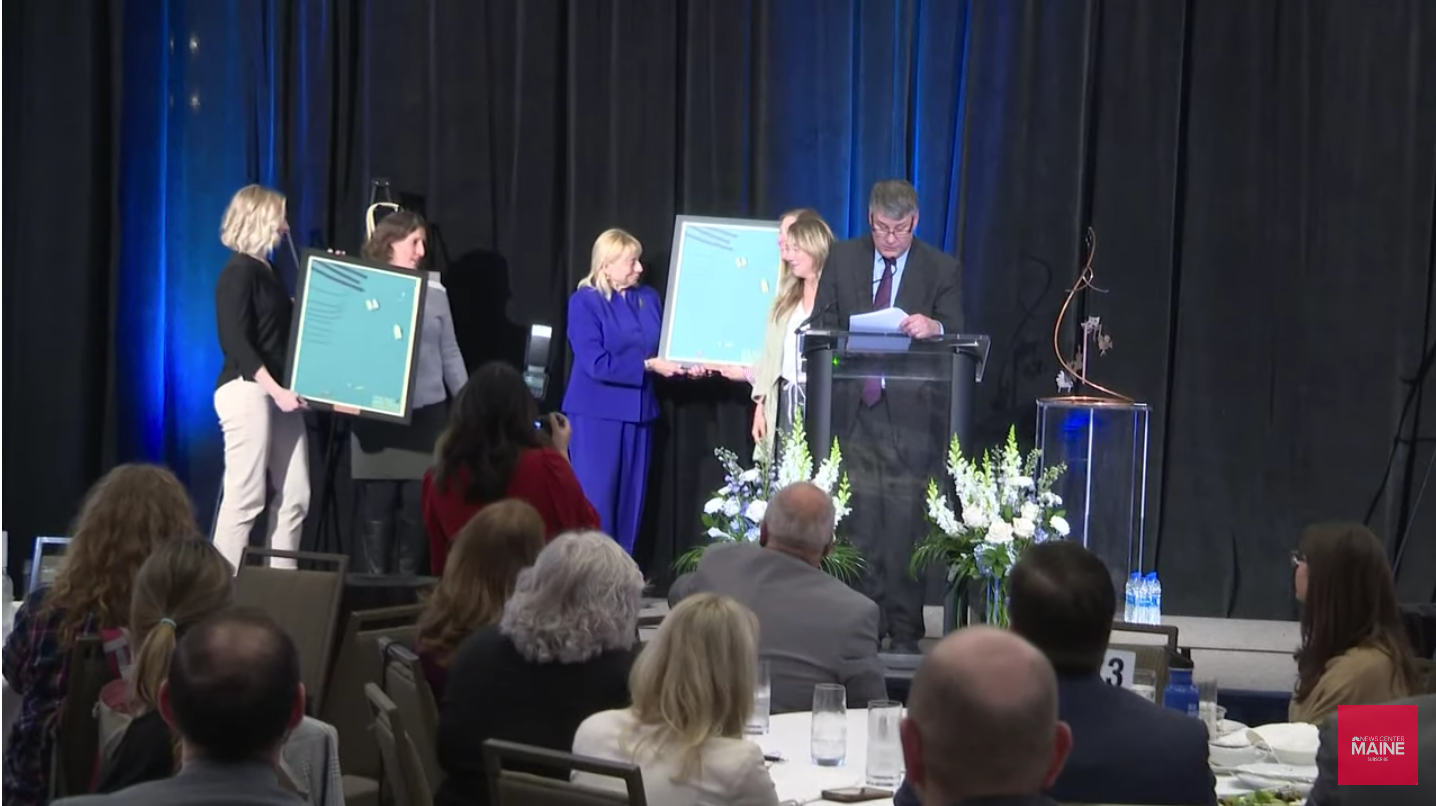 MAINE’S TOURISM INDUSTRY IS READY FOR SUMMER
MAINE’S TOURISM INDUSTRY IS READY FOR SUMMER
News Center Maine, 4/14/22 – “According to the [Maine Office of Tourism], 15.6 million visitors came to Maine, which generated a total economic impact of more than $14 billion in 2021 and supported more than 143,000 jobs. Those numbers helped The Maine Oyster Trail find success when it launched last summer. More than 80 businesses work together to provide unique and authentic Maine experiences centered around oysters. Afton Vigue, Jaclyn Robidoux, and the rest of The Maine Oyster Trail team were honored at the Conference Thursday, winning the Governor’s Leadership and Growth award.”
 MAINE AQUACULTURE LEADER STEPS ONTO NATIONAL STAGE
MAINE AQUACULTURE LEADER STEPS ONTO NATIONAL STAGE
Mainebiz, 4/5/22 – “A leading voice in Maine’s aquaculture sector has been tapped to work on industry issues at the national level. Sebastian Belle, executive director of the Maine Aquaculture Association, was named president of the board of directors of the National Aquaculture Association for the 2022 term. ‘Maine is often viewed as a case study for how to ‘do things right’ in terms of balancing development with the interests of multiple stakeholders in public waters and how to protect the environment,’ Belle told Mainebiz.”
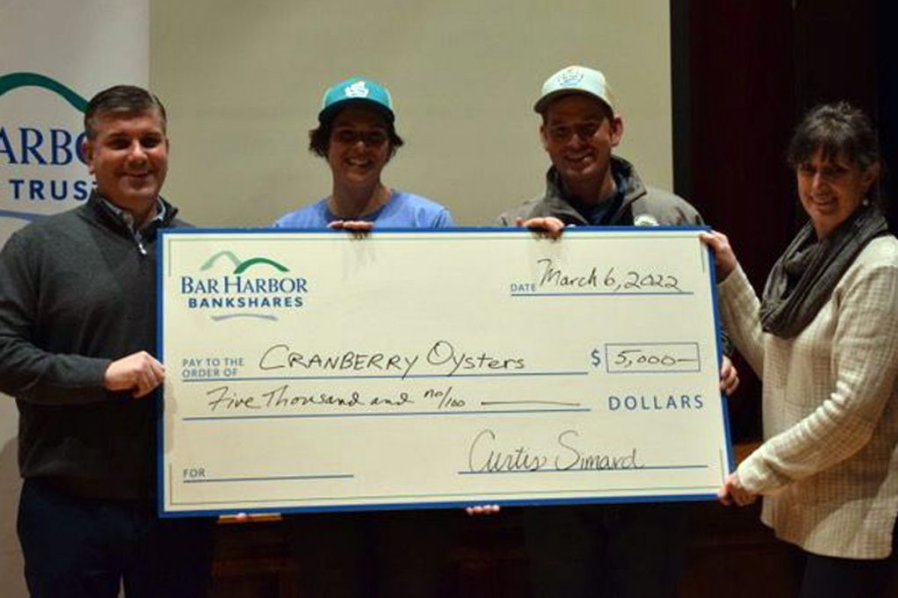 OYSTER FARM, FLOWER TRUCK WIN BUSINESS COMPETITION
OYSTER FARM, FLOWER TRUCK WIN BUSINESS COMPETITION
Mount Desert Islander, 3/9/22 – “Cranberry Oysters and Little Red Flower Truck received $5,000 each as winners in the “pitch competition” at the end of a three-day Business Boot Camp for local entrepreneurs that was held last weekend by Mount Desert 365, which works to foster year-round economic vitality. The prize money was provided by the event’s sponsor, Bar Harbor Bank & Trust. MD365 describes the Business Boot Camp as “an intensive mini-MBA weekend program of business skill development for local business owners and entrepreneurs [. . .] The winner of the pitch competition, chosen by the event’s judges, was Cranberry Oysters, an oyster farm off Great Cranberry Island owned by Lauren Gray.”
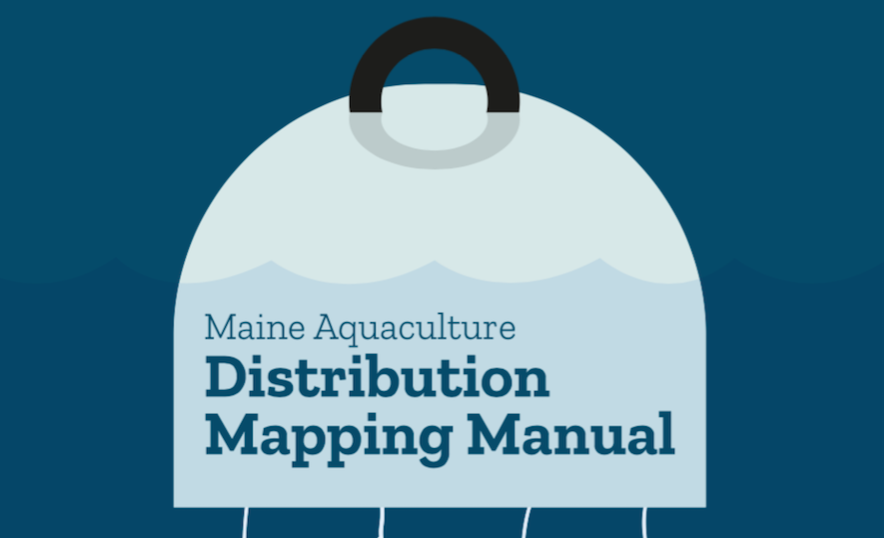 AQUACULTURE ASSOCIATION CREATES DISTRIBUTION MANUAL FOR GROWERS
AQUACULTURE ASSOCIATION CREATES DISTRIBUTION MANUAL FOR GROWERS
Ellsworth American, 3/9/22 – “‘When COVID hit, our sales shut down instantly,’ Brooksville oyster farmer Tonyia Peasley recalled. She and husband Frank Peasley own and operate Little Island Oyster Co., where the Bagaduce River winds through Brooksville. With roughly 80 percent of seafood landing in restaurant kitchens for their diners to consume, the initial pandemic shutdown was devastating for growers and harvesters of oysters, mussels, seaweeds and other aquaculture products, according to the Maine Aquaculture Association. So, to help aquaculturists navigate the maze of new and vanishing distribution channels, the MAA released an Aquaculture Distribution Mapping Manual on March 1.”
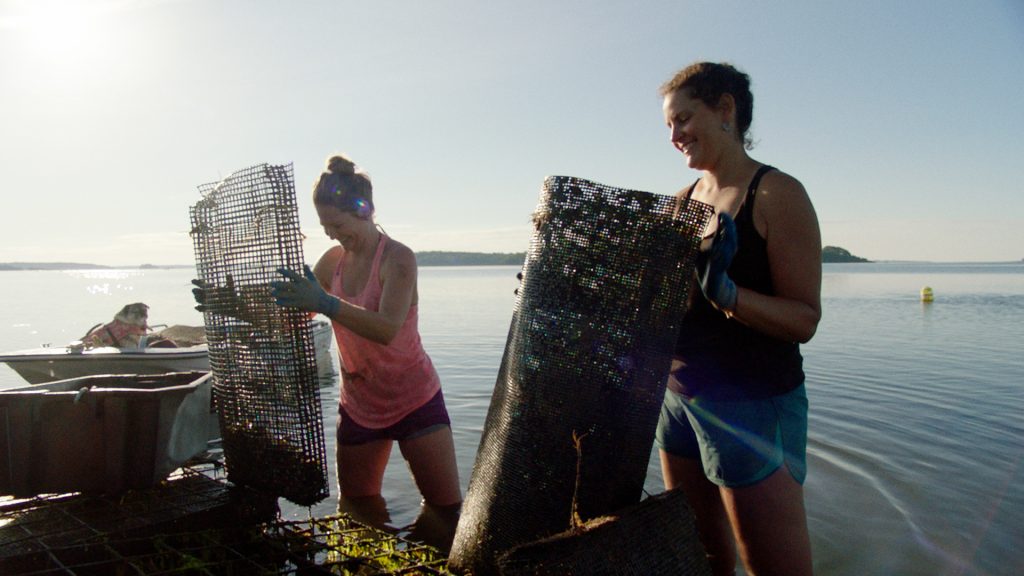 DOCUMENTING MAINE AQUACULTURE THROUGH FILM
DOCUMENTING MAINE AQUACULTURE THROUGH FILM
Aquaculture North America, 3/9/22 – Contributed by Afton Vigue, outreach and development specialist for the association: “Shortly after I began work at the Maine Aquaculture Association in 2019, I realized that aquaculture is a relatively abstract concept for most folks. Few people ever come in contact with a sea farm. While this may seem like a big hurdle for the industry to overcome, I see it as an opportunity for us to tell our story to a broad audience with few opinions on the subject. In the digital age, one of the most compelling tools we have to tell stories is film.”
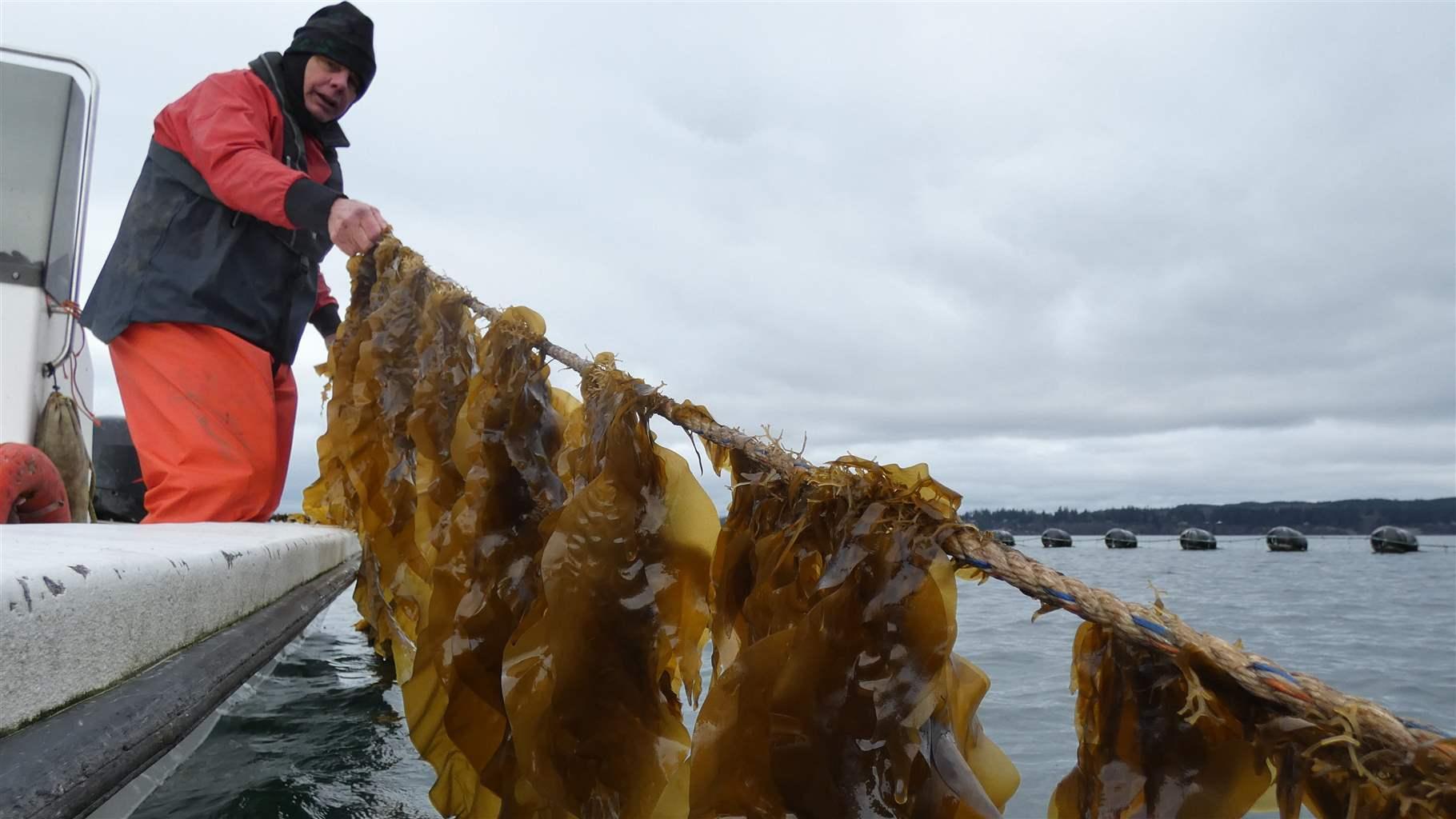 SEAWEED FARMING HAS VAST POTENTIAL (BUT GOOD LUCK GETTING A PERMIT)
SEAWEED FARMING HAS VAST POTENTIAL (BUT GOOD LUCK GETTING A PERMIT)
Pew Trusts, 3/7/22 – “‘There’s a lot of people who are interested in seaweed farming, take a look at that [permitting] flowchart, and decide there’s just no functional way,’ said Laura Butler, aquaculture coordinator with the Washington State Department of Agriculture. [. . .] Many aquaculture leaders cite Maine, which created the nation’s first leasing system for farming in state waters in 1974, as having a well-developed industry and reasonable regulations. The 190 commercial farms in Maine generate $80 million to $100 million annually in sales, led by salmon, mussels and oysters. Many of the state’s new ocean farmers come from commercial fishing or other maritime backgrounds.”
